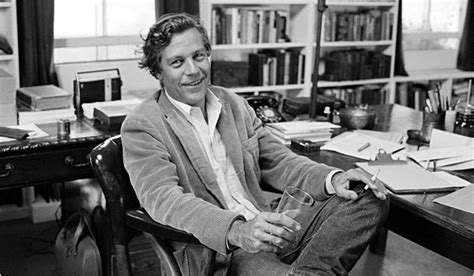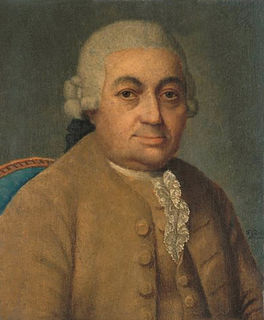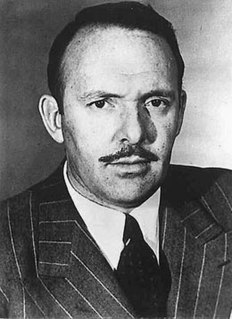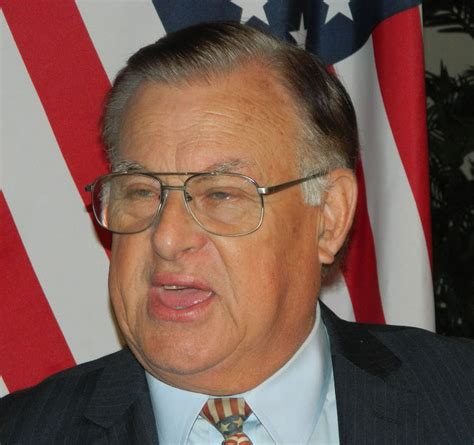A Quote by Edith Wharton
Wherein lies a poet's claim to originality? That he invents his incidents? No. That he was present when his episodes had their birth? No. That he was first to repeat them? No. None of these things has any value. He confers on them their only originality that has any value, and that is his way of telling them." Mark Twain "...every literature, in its main lines, reflects the chief characteristics of the people for whom, and about whom, it is written.
Related Quotes
Wherein lies a poet's claim to originality? That he invents his incidents? No. That he was present when his episodes had their birth? No. That he was first to repeat them? No. None of these things has any value. He confers on them their only originality that has any value, and that is his way of telling them.
A parent who from his own childhood experience is convinced of the value of fairy tales will have no difficulty in answering his child's questions; but an adult who thinks these tales are only a bunch of lies had better not try telling them; he won't be able to related them in a way which would enrich the child's life.
Originality is another criterion of aesthetic value. We may formulate an originality principle, according to which highly valuable works of art provide hitherto unavailable insights.... Notice that, although originality is a necessary condition of high aesthetic value, it is far from a sufficient condition. Many original works have little or no aesthetic value. An artwork may present a novel but uninteresting perspective, or one that is original but wrong.
Every man should write a brief history of his life: his parentage, his birth, his religion, when he was baptized and by whom, when ordained, what to, and by whom-give a brief sketch of all his missions and of all his official acts and the dealings of God with him. Then if he were to die and the historians wished to publish his history, they would have something to go by.
As Our Predecessors have many times repeated, let no man think that he may for any reason whatsoever join the Masonic sect, if he values his Catholic name and his eternal salvation as he ought to value them. Let no one be deceived by a pretense of honesty. It may seem to some that Freemasons demand nothing that is openly contrary to religion and morality; but, as the whole principle and object of the sect lies in what is vicious and criminal, to join with these men or in any way to help them cannot be lawful
The kernel, the soul ? let us go further and say the substance, the bulk, the actual and valuable material of all human utterances ? is plagiarism. For substantially all ideas are second-hand, consciously and unconsciously drawn from a million outside sources, and daily used by the garnerer with a pride and satisfaction born of the superstition that he originated them; whereas there is not a rag of originality about them anywhere except the little discoloration they get from his mental and moral calibre and his temperament, and which is revealed in characteristics of phrasing.
It is appearances, characteristics and performance that make a man love an airplane, and they, are what put emotion into one. You love a lot of things if you live around them, but there isn't any woman and there isn't any horse, nor any before nor any after, that is as lovely as a great airplane, and men who love them are faithful to them even though they leave them for others. A man has only one virginity to lose in fighters, and if it is a lovely plane he loses it to, there his heart will ever be.
Kant's treatments of rational theology and metaphysics were aimed primarily at theoretical questions. His attitude toward the pseudo-sciences of "special metaphysics" in Wolff and Baumgarten was always double-edged. He did see them as pseudo-sciences but also valued their doctrinal value and especially their regulative value for the empirical sciences. Like his views about religion, I don't think any of this is any longer viable in its original form.
We do not always remember the things that do no credit to us. We justify them, cover them in bright lies or with the thick dust of forgetfulness. All of the things that Shadow had done in his life of which he was not proud, all the things he wished he had done otherwise or left undone, came at him then in a swirling storm of guilt and regret and shame, and he had nowhere to hide from them. He was as naked and as open as a corpse on a table, and dark Anubis the jackal god was his prosector and his prosecutor and his persecutor.
Writing itself, if not misunderstood and abused, becomes a way of empowering the writing self. It converts anger and disappointment into deliberate and durable aggression, the writer's main source of energy. It converts sorrow and self-pity into empathy, the writer's main means of relating to otherness. Similarly, his wounded innocence turns into irony, his silliness into wit, his guilt into judgment, his oddness into originality, his perverseness into his stinger.




































